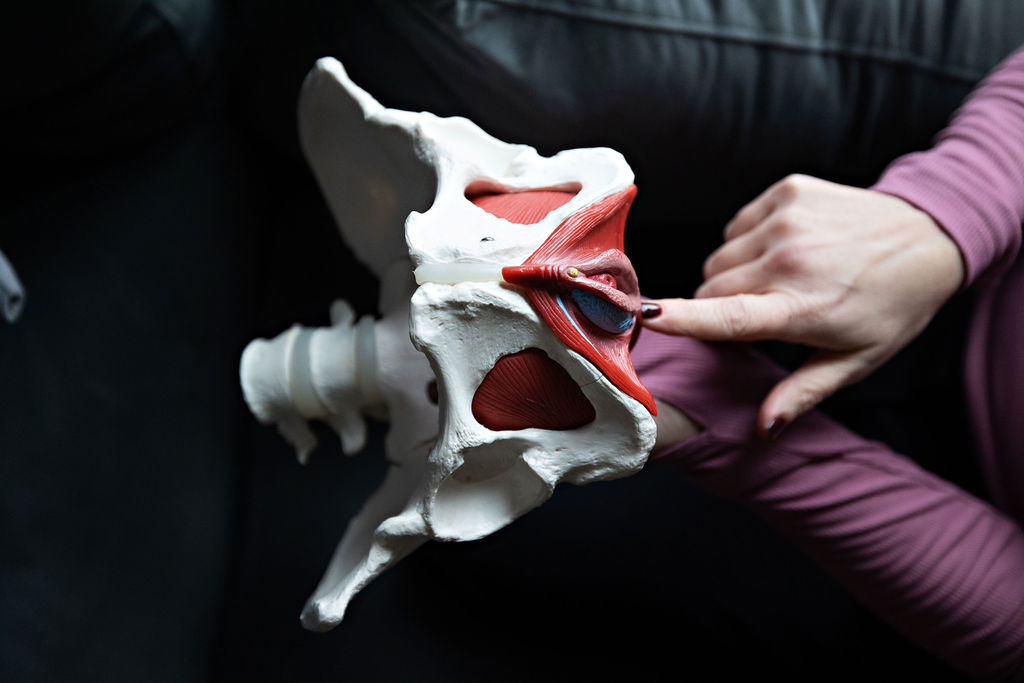Where should you turn when you have a problem?
Knowing who to turn to when you are looking for support with your sexuality can be complex. Most likely, if you have had health problems in the past, you simply went to your primary care doctor or maybe you saw a specialist such as a gynecologist or gastroenterologist.
Maybe you are a little skeptical of western medicine and have sought out chiropractors or naturopathic doctors instead.
If your health problem has been more emotional, psychological or mood-related, perhaps you have sought out a social worker, therapist or psychiatrist for support.
But can these same resources help you with your sexuality? Maybe, but likely not. Providers trained in western medicine get woefully little education about sexuality (see previous blog post). Even gynecologists and urologists often don’t have much more education or interest in the nuances of sexuality. Practitioners trained to provide more holistic or integrative care also don’t typically have such training. Though it may surprise you, neither do therapists!
ENTER THE SEXUALITY SPECIALIST
Standard American medicine and therapy has not tended to address sexuality in any meaningful way other than to pathologize it or to offer ways to avoid the deadly harms of sex, like STIs and pregnancy. But if you have ever had sex before, you may know that there is more to it than that.
In the past few decades, there has been an explosion in the number of folks available to help you with your sex life. Some are trained professionally in an academic model, some have worked in an apprenticeship model, others have little training but lots of hutzpah. Most of these folks offer support through medications or through talk therapy, but others will get naked with you and engage in therapeutic intimate touch.
How are you to make sense of this landscape and find the kind of personalized support you need?
LET’S EXPLORE SOME OF THE SEXUALITY PROFESSIONALS
Certified Sex Counselor: Sex counselors have a back ground in a helping profession such as nursing, medicine, clergy, or physical therapy and have thousands of hours of training and supervised experience to specialize in sexuality. After a rigorous training process, they are certified through the American Association Sex Educators, Counselors and Therapists (AASECT). Counselors practice in a variety of ways consistent with their background and personal philosophy. Sex counselors often are solution focused and engage in short term counseling. As a sex counselor, I am grounded in my background as a nurse practitioner and licensed to provide holistic medical care. With the support of extensive additional training in sex counseling, I can also seamlessly integrate therapeutic counseling strategies to truly provide holistic support for the physical, emotional, psychological, and spiritual aspects of sexuality. You can learn more about my background and training here. Sex counselors do not engage in intimate touch.
Certified Sex Therapist: A sex therapist has a background in a mental health discipline such as social work, marriage and family therapy, mental health counseling, psychology, psychiatry, etc. They too have undergone rigorous additional training to become specialists in sexuality and are certified through AASECT. Sex therapists can do both short and longer-term therapy. The work of sex counselors and sex therapists can overlap and there is not an absolute defining line between them. However, sex therapists tend to work with clients and couples who have chronic or complicated mental health issues in addition to sexuality concerns. Sex therapists do not engage in intimate touch.
Certified Sex Educator: As the name suggests, sex educators are trained to provide education to individuals, couples and groups about sexuality. Given the state of sex education for our young people in America, so much of the support that is needed within sexuality comes down to the need for excellent information about the many domains related to sex including anatomy, physiology, gender identity, sexual development, consent etc. Sex educators can work in school settings or they may work privately providing public classes. They may also offer one-on-one sex education as well. Certified Sex Educators do not engage in intimate touch.
Somatic Sexologist/Sexological Bodyworker: Somatic sexology and sexological bodywork are two of the disciplines that do engage in intimate touch. These practitioners support clients to engage deeply with the body through breath, movement, sound and touch. Often these practitioners are connected to the long traditions of Tantric or Taoist philosophy and sexuality. Somatic bodyworkers and sexologists are trained to a high ethical standard and code of conduct in order to effectively and compassionately engage in body-to-body contact when it is appropriate. Certification is available for these practitioners as well through the Institute for Somatic Sexology.
Sex Coach: In truth the title sex coach can mean just about anything. Some are highly trained professionals who have chosen to offer coaching as a way to expand their ability to engage with clients in less restrictive ways than their licensure requires. Others have trained specifically in sex coaching with experienced coaches. Some may have no significant training at all, but simply have a deep passion for the work. Sex coaches can be certified by a variety of groups. Sex coaches do not typically engage in intimate touch. A great example of certification in sex coaching is the Somatica Institute.
A CONFUSING NAME GAME
It is helpful to have some sense of what these five broad categories of sex specialists are all about. But as you may have noticed, many of them overlap and most of them are not well defined at all. Ultimately, there is probably just as much heterogeneity within each category as there is between them. So, do these categories even mean anything?
Unfortunately, even if these categories were clearly defined, the fact is that there is no certification required to use any of these titles.
Maybe it would be helpful if there were stricter criteria for use of these titles. However, this would likely vary state to state and would likely remain just as confusing, only more regulated (perhaps not helpfully so).
TIP OFFS THAT A SEX SPECIALIST IS THE REAL DEAL
So, what are you to do? Here are some tips on how to find the right sex specialists for your needs:
1. Check out the big organizations. Not sure where to start to find a sexuality professional? One good option is to check out the websites of the national organizations in sexuality. Most of them have a “Find a Professional” link where you can see practitioner who are associated with the organization. Here are a few:
American Association of Sex Educators, Counselors and Therapists (AASECT)
International Society for the Study of Women’s Sexual Health (ISSWSH)
Association of Certified Sexological Bodyworkers
International Pelvic Pain Society
2. Check the Bio. Found someone you might want to work with? Check out the person’s training and certifications in their biography from their website. Many people will spend a lot of time in their bio telling you their personal story and why they got into sexuality work. This can be important when you are evaluating your felt connection to them (see below) but do take a minute to look at what type of training they have done, how long they have been in practice, and what specific certifications in sexuality they may hold. Sexuality is a complex biopsychosocial phenomenon; training and experience are essential to providing effective support. If you don’t recognize the training they had, look it up, see what vibe you get. Does it look legitimate?
3. Check out their services and philosophy. Given that there is so much variability in how people practice within each type of sexuality profession, you can’t rely on their title alone to define what to expect. Read through the services they offer. Read about their philosophy and how they describe their work. Do they work with individuals or couples? Can they prescribe medications or do a physical exam? Do they offer intimate touch? Do they have a special niche in their practice? Do you see yourself and your issues represented on their website? Does their way of describing the problem and importantly the ways to work towards resolution of the problem resonate with you? If you aren’t sure after looking over their website, reach out to them and arrange for time to talk.
4. Check your Spidey Sense. Do you feel a connection to this person? What is it based on? Take a moment, take a breath, check inside. Do they feel safe? Do they feel trustworthy? Can you get a felt sense of their compassion and competence? Intuition is a good indicator that you should trust, but you should also verify. It may take meeting them for an appointment to better determine if it is a good fit to go forward. Ultimately, the relationship that you build with your sex specialist is one of the most important factors in determining whether your work with them will be supportive to you and successful.
5. Check out if you need to. Don’t be afraid to discontinue work with someone if it is not the right fit. Life is short! You deserve to work with someone who is right for you, right now, just as you are. If you do not feel supported, move on. But don’t give up, your sexuality is important and you deserve to work with someone who respects you, who honors your journey and who you can resonate with.
Here is my shameless plug for sex counseling! Since sex counselors have a broad background they are a great place to start. Sex counselors can offer support in a wide range of sex related concerns, many can offer examination, diagnosis and treatment – in addition to education and counseling. Sex counselors can connect with you where you are right now and help you navigate the wide world of professional sexual support when needed.

